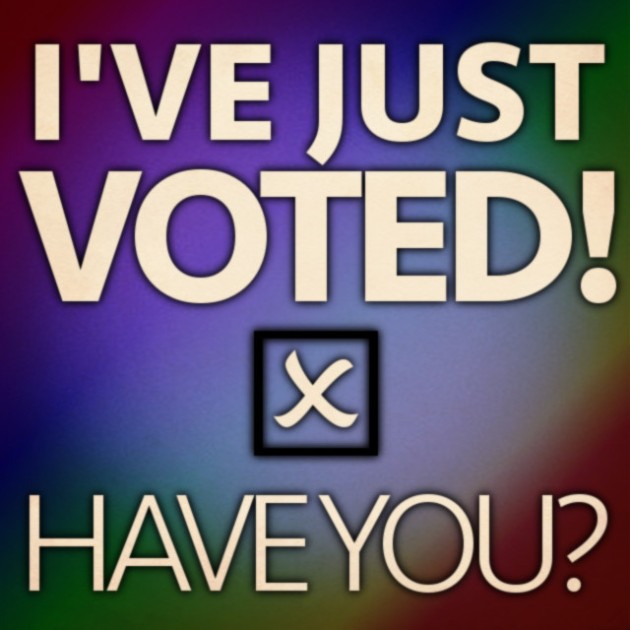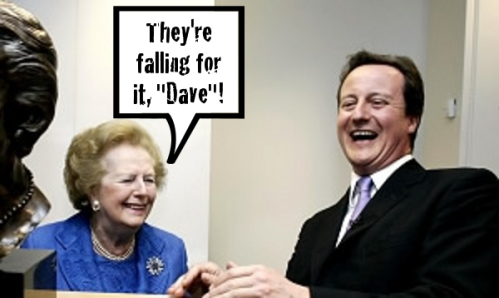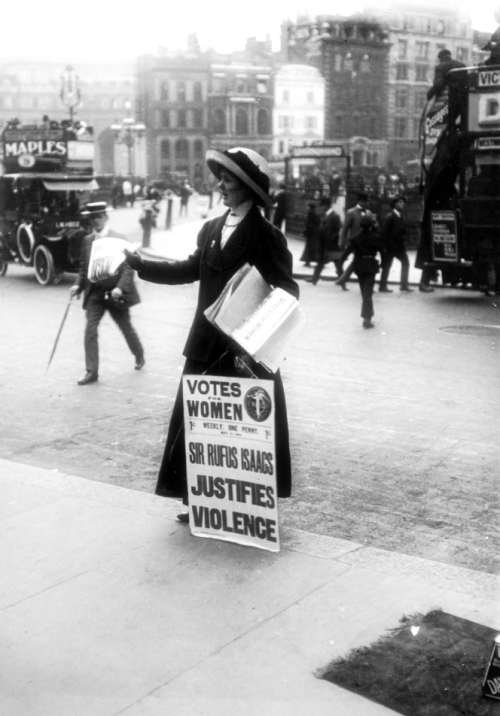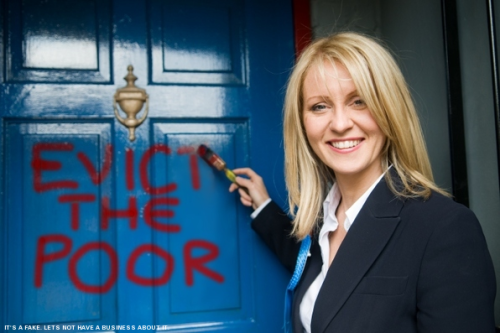On Sunday, our votes from the European Parliament election will be counted and the results announced.
At some point during the BBC election programme, Jeremy Vine will mug to the camera, shrug his shoulders, and confidently inform the public that the proportional voting system we use in EU elections is “complicated”, “complex”, “hard to understand”, “awkward” and other unflattering things.
It isn’t, it’s just the politicians, and the BBC, have a very dim view of the intelligence of the British public. No, really – they think we’re thick.
The actual voting system – mark a single X – couldn’t be any simpler. A 2-year-old could do it. The counting is a bit more complicated, in some ways, since it involves counting the papers to find who got the most scrawled crosses, then counting them again to find who was next, then again and again until all seats (4 to 10 depending on where you live) are filled (it’s slightly more complicated than that, but only very very slightly).
This produces a semi-proportional result that penalises minor parties and rewards the larger parties, but it’s better than our standard First Past The Post system that penalises everyone except the people who voted for the ‘winner’ (and that can be less than 30% of the voters).
There is a better system. It’s called the Single Transferrable Vote, STV, or “Supervote”. Now, this is fearsomely complicated… for the people totalling up the votes at the end, who need at most an O Level in maths to understand it. For the voters, it’s actually simpler than X voting.
On Thursday, I got my local council ballot paper and had to make a decision based entirely on what I thought other people might vote for. I wanted to vote Green, but they couldn’t win here. I didn’t want the local Conservative, Jeff Green, to win as I’ve met him and he’s a condescending piece of shit. The next challenger is usually a Liberal Democrat, but they were on their way to being wiped out for foolishness. So that left Labour, and I’m still not over the illegal and immoral war against the people of Iraq they started for no reason. In a Tory safe seat, I could do nothing more than vote for the Independent, who would come last, but I know him and he’s a great guy. So I chose to waste my vote to try to save his deposit (he didn’t).
X voting was, for me, a total waste of time. There was nothing I could do unless I was sure that everyone else was likely to do it as well. And I was sure the anti-Tory vote would be split. And it was.
Under STV, we don’t have to make such stupid, stab-in-the-dark guesses about other people. You vote for who you want to vote for, but tell the people who are counting who you’d like your vote to go to if that person can’t win, or that person would win by so much that you’re just shouting into the well.
My local ballot looked like this:
Independent [ ]
Tory [ ]
Labour [ ]
LibDem [ ]
Green [ ]
My STV ballot paper would’ve looked like this:
Tory A [ ] Labour A [ ]
Tory B [ ] Labour B [ ]
Tory C [ ] Labour C [ ]
LibDem A [ ] Green A [ ]
LibDem B [ ] Green B [ ]
Independent A [ ]
Independent B [ ]
Wow! So very complicated, Jeremy Vine would tell you. But it’s actually easier. I know who I want to win and who I don’t want to win. So I can quickly say: Green A [1], Green B [2], Independent A [3], Labour C [4], Labour A [5], Labour B [6], Independent B [7]. I won’t bother voting for the Tories at all, but I could probably pick between them if I had to.
The people counting have the “hard” job of using basic maths to say “Green A has won lots and lots of votes, so we’ll take this vote and apply it to your next choice” or “Green A is hopeless, so we’ll take this vote and apply it to your next choice”. Eventually, I’ll get to contribute to electing a candidate I liked or at least didn’t mind. And I’ll have voted “against” the Tories by giving them nothing. So everyone is happy! And, more importantly, every single vote counts.
Yes, this does mean that UKIP-BNP and other nutters get seats from nutter voters. But designing a voting system to ensure that people you don’t like but other voters, however misguided, do is not democracy. It’s actually highly anti-democratic and leads to the nutters getting seats anyway and it looking like a majority wanted it when they “won” by getting 25% to their opponents’ 75% split 6 ways.
On Thursday, I wasted my local election vote. But any X I had made would’ve been wasted. It would either have gone to someone who was going to ‘win’ comfortably anyway, or have gone to someone who was going to lose comfortably. And the person who “won” did so with less than half the voters choosing him. Much less than half.
And then the politicians and the BBC wonder why we don’t bother to turn out to vote any more, and decided it’s because voting is hard and we don’t want to bother our pretty little heads with it, so a better voting system would, obviously, just put us thicko voters off even more – because Jeremy Vine would like you to think he’s on your side, you lumpen mass of idiocy, as he mugs to the camera and complains on your behalf how complicated it was for you to draw a single X.




